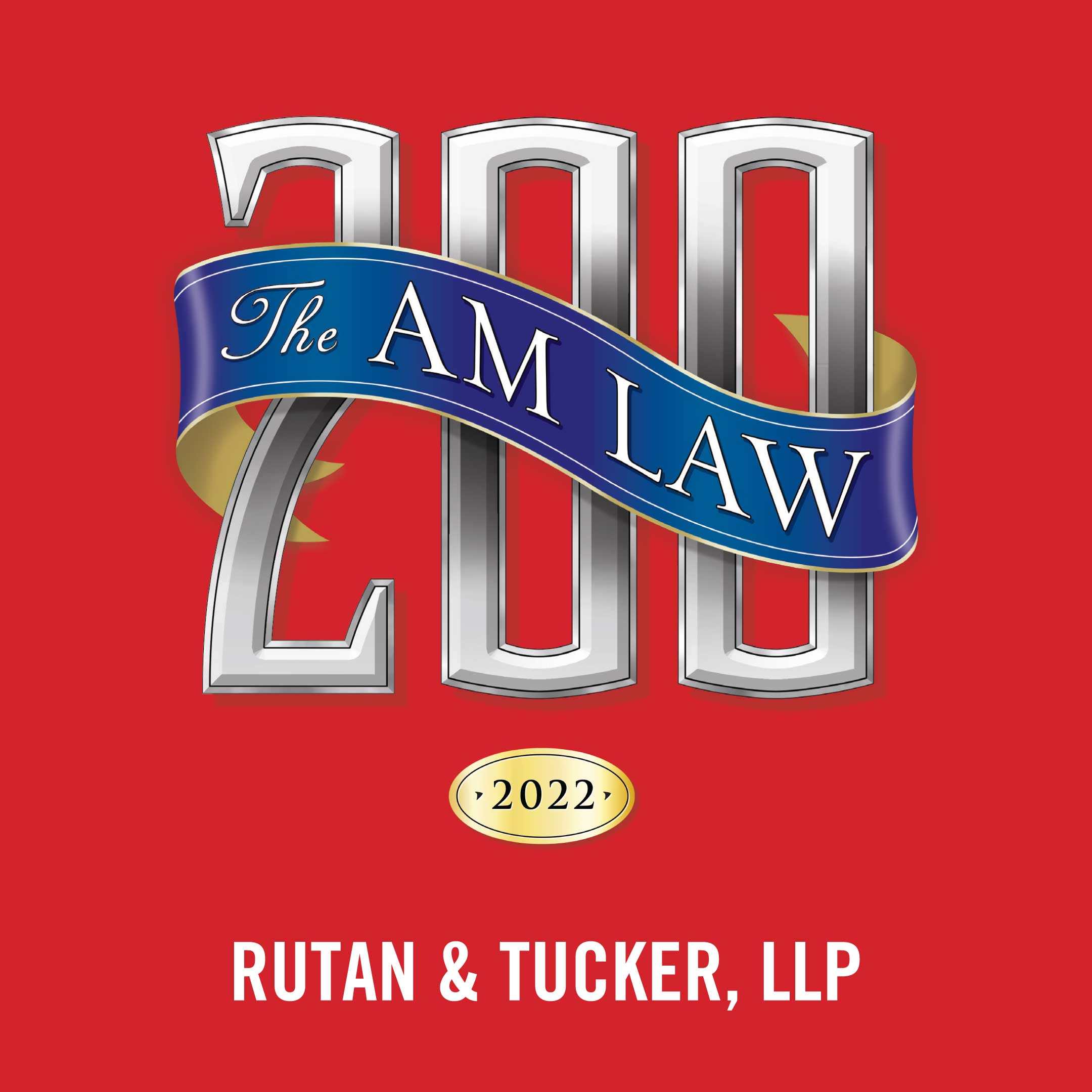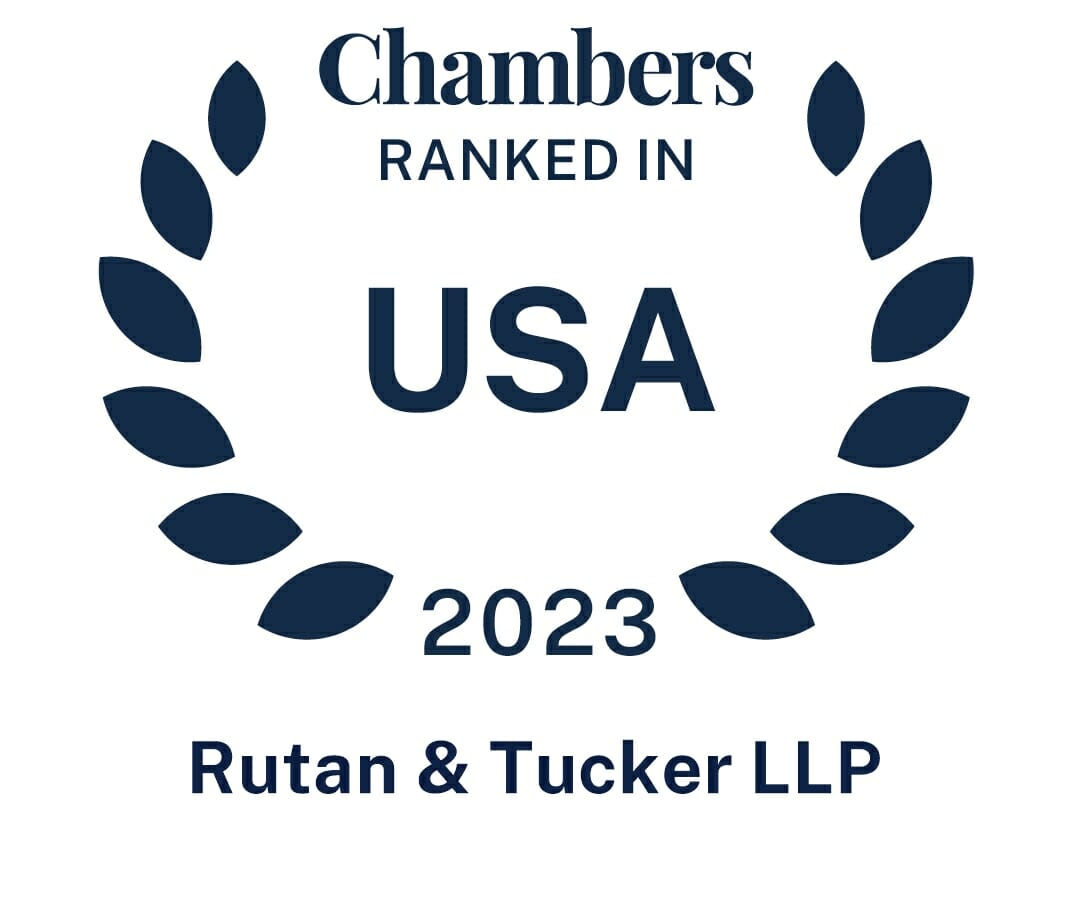Rutan & Tucker has for more than a century enjoyed Significant success in the appellate courts.
As the largest full service law firm based in Orange County, California, Rutan & Tucker, LLP has decades of significant success in the appellate courts of California and other states as well as many federal circuits. Rutan & Tucker’s attorneys include former law clerks for federal appellate and District courts as well as various State courts on the appellate and trial court levels. Members of the Appellate Practice Group regularly provide presentations on various aspects of appellate law.
Team
Overview
Although an attorney may be adept at practicing on the trial court level, such skills and talents do not always translate to practice before appellate courts. The attorneys in Rutan & Tucker’s Appellate Practice Group have substantial experience in and devote a significant portion of their practices to representation of clients in various courts of appeals. Rutan & Tucker’s Appellate Practice Group attorneys handle appeals involving numerous substantive and procedural legal areas following entry of judgments or orders in the trial court, as well as on an emergency basis by way of extraordinary writ practice. Those attorneys also have significant experience and have achieved substantial success in pursuing writ review of government agency decisions.
Members of Rutan & Tucker’s Appellate Practice Group also consult with other trial attorneys with regard to positioning a client engaged in litigation at the trial court level for potential success on appeal. They would be happy to discuss with you how they might be able to assist you, including as to such matters as:
- Challenging an unfavorable trial court or agency ruling, order or judgment;
- Defending a successful trial court decision;
- Positioning yourself at the trial court level for potential appellate success;
- Seeking emergency appellate relief by way of extraordinary writs, motions and stays;
- Preparing amicus filings with appellate courts.
Experience
RECENT APPELLATE SUCCESSES
- Kelly Sutherlin McLeod Architecture, Inc. v. Schneickert, 194 Cal.App.4th 519 (2011): Rutan & Tucker defeated a $2 million claim in arbitration against its client, prominent architect Kelly Sutherlin McLeod, for alleged fraud and professional negligence and obtained an award against the defendant, Michael D. Schneickert, for unpaid architect fees. Rutan & Tucker also obtained an award for defamation against Schneickert, including $100,000 in defamation damages, $250,000 in punitive damages and an order that Schneickert issue a retraction of false and defamatory statements Schneickert made regarding Ms. McLeod. Schneickert appealed, and Rutan & Tucker represented Ms. McLeod throughout the appeal. The Court of Appeal affirmed the arbitrator’s award, including the retraction (save for a few sentences constituting a compelled apology), holding that the retraction did not violate the First Amendment and was within the arbitrator’s power to grant. The decision marks a significant development in the law regarding the power of arbitrators to grant relief beyond that which a trial court may be able to provide, and regarding the relief a victim of a defamatory statement may obtain against the person disseminating the statement.
- Overhill Farms v. Nativo Lopez, et al., 190 Cal.App.4th 1248 (2010): Overhill Farms brought an action against six individuals for defamation and related claims based on their repeated false statements about the company, which resulted in a front-page story in the L.A. Times. Rutan & Tucker successfully defeated the defendants’ anti-SLAPP motion, which the defendants appealed. Rutan & Tucker represented Overhill Farms throughout the appellate proceedings, which resulted in the Court of Appeal upholding the trial court’s decision and the California Supreme Court denying the defendants’ petition for review. The Court of Appeal’s decision has significant implications with regard to the rights of businesses to protect themselves against false statements and with regard to the application of the anti-SLAPP statute in such actions.
- City of Cerritos v. Cerritos Taxpayers Assn., 183 Cal.App.4th 1417 (2010): In a validation action brought by the City of Cerritos under California Code of Civil Procedure section 860, and California Government Code section 53511, the trial court entered a judgment finding that a financing agreement between the City and a redevelopment agency for the construction of a senior citizen housing project was valid and did not require a vote of the electorate under Article 34 of the California Constitution. A taxpayers’ group that had challenged the agreement appealed, and Rutan & Tucker represented the City in the appeal. The Court of Appeal affirmed the trial court’s judgment, holding that the City’s purchase and renovation of the subject properties was a proper use of the redevelopment agency’s low- and moderate-income housing funds. The Court further concluded that the project was not subject to voter approval under Article 34 of the California Constitution. The decision resulted in significant new precedent involving the proper uses of a redevelopment agency’s housing monies and the reach of Article 34 of the California Constitution.
- Estate of Bennett, 163 Cal.App.4th 1303 (2008): In 2004, Lu Ella Bennett, Jack H. Bennett, Jr., and Louise Comer (the “petitioners”) – the widow and children of decedent Jack Bennett (the “decedent”) – assigned their interests in the decedent’s estate to Smith Heavy Industrial Transit Corporation (“Smith”). The petitioners thereafter sought to open probate proceedings with regard to the decedent’s estate, and the personal representative filed a motion to set aside and rescind the assignment of the petitioners’ claims to Smith. Despite the existence of conflicting declarations, and over Smith’s objections, the probate court refused to hold an evidentiary hearing and granted the motion to set aside the assignment. Smith – represented by Rutan & Tucker – appealed, and the Court of Appeal reversed, holding that while the probate court had jurisdiction to consider the motion for rescission of the assignment, Smith was entitled to an evidentiary hearing. The decision marked a significant development in probate law, establishing the right to evidentiary hearings in circumstances where probate courts had previously resolved matters by way of written declarations, despite conflicting declaration testimony.
- Buchmiller v. Hines Nurseries, Unpublished (2008): The plaintiff asserted claims for wrongful termination of his employment with Hines Nurseries, which was represented by Rutan & Tucker. After Rutan & Tucker successfully obtained summary judgment for Hines Nurseries, the plaintiff appealed to the California Court of Appeal contending that there were multiple triable issues of fact and that the trial court had made a number of procedural errors. Rutan & Tucker represented Hines Nurseries on appeal, and the Court of Appeal sustained the grant of summary judgment for Hines Nurseries in every respect.

 Email
Email
 vCard
vCard

















